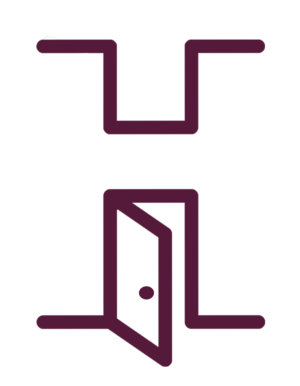HOLLI’S BLOG
Why is Media Literacy crucial to maintaining a healthy Body Image?
The world of social media is different from your off line life and the number of “likes” you get on a post is not a barometer for how liked you are in real life…
The world of social media is different from your off line life and the number of “likes” you get on a post is not a barometer for how liked you are in real life.
Online community vs real friends : There is a BIG difference.
Platforms like Instagram and Snapchat are the worst for impacting mental health.
People report feeling bad about themselves after spending too much time on them.
The visual imagery we are bombarded with is often the highlight reel of people’s lives, not their actual reality and what they do “ behind the scenes”
Be mindful of what you watch and how you consume MEDIA. Have periods when you UNPLUG.
Have REAL conversations. Talk to girls about beauty ideals, analyze pictures, learn about airbrushing and photoshopping techniques.
Talk about how beauty/diet industries are heavily marketed and by pushing their products, contribute to making women feel insecure so that they will buy more. A new lipstick is always fun but be mindful
Choose the people you follow wisely - I cannot stress this enough.
Do they make you feel good about yourself and your body? Do they inspire you and make you feel positive and happy?
Or do you find that you constantly compare yourself to them and criticize yourself for not looking a certain way, like they do.
Don’t forget most of the time even they don’t look like they do. :)
How do you recognize signs of negative Body Image in yourself or others? How do you support someone displaying those signs?
Let’s remember that we all have an element of a distorted view of our bodies as well as complicated relationships with food…
Let’s remember that we all have an element of a distorted view of our bodies as well as complicated relationships with food.
All of the following are “normal” to a certain degree:
-Experiencing body dissatisfaction, being preoccupied with body weight, shape or appearance
-Struggling with feelings of depression, isolation, low self-esteem and/or disordered eating due to body dissatisfaction
-Having shame, anxiety, and self-consciousness about your body
-Frequently comparing your body to others and feeling that your body is flawed
RED FLAGS are:
-Obsession with body size and shape
-Extreme weight loss
-Refusal to eat, denial of hunger even when starving
-Labeling foods as good or bad.
-Fixate on eating foods that give a feeling of being healthy
-Obsessively going to the gym
How to support:
-The most important thing is to Notice changes in behaviour
-Begin conversations if you see someone is not him/herself
-Build self-esteem and confidence; there is more to being a human than what you look like
-Celebrate diverse shapes and individuality
-Praise the actions of the body not the appearance, function OVER form
-Take the focus off numbers on a scale - encourage balance between healthy eating and exercise
-Talk about Appetite awareness
Practice intuitive eating: I like to call it appetite awareness, being mindful and listening to hunger cues letting us know to eat when we are hungry and stop when we are full
Notice emotional eating which happens when we are not able to confront certain feelings so we eat instead: am I hungry for food or do I need something else?
Watch your language - avoid labeling foods as “good vs. naughty” and talking about “what to avoid”. Aim for balance and moderation.


